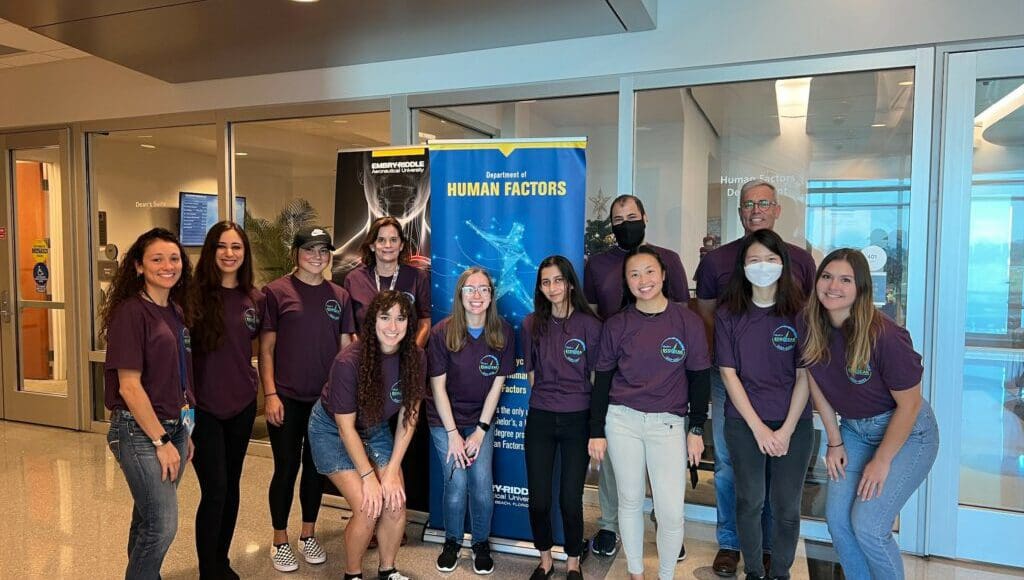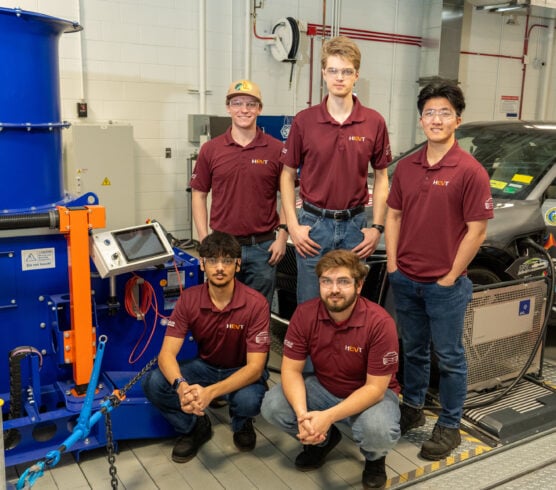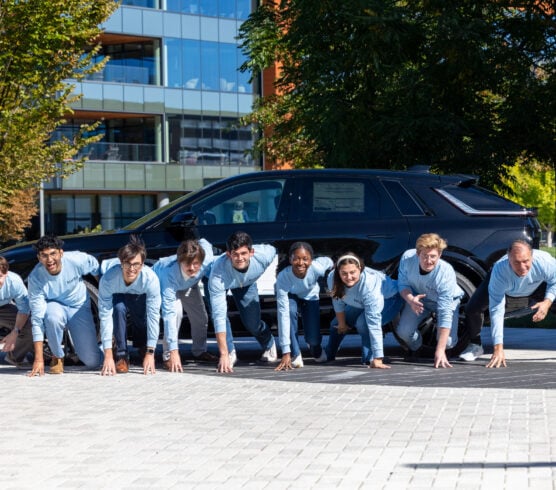The EcoCAR Mobility Challenge is at the forefront of automotive innovation by tasking participating teams to explore SAE Level 2 automation, connectivity, and energy consumption optimization. As technology in vehicles change, customers are faced with new user experiences (UX); this presents an opportunity for innovation around the Human-Machine Interface (HMI) of vehicles. The objective of the EcoCAR Mobility Challenge HMI/UX initiative is designed for teams to effectively educate a driver about their team vehicle’s Connected and Automated Vehicle (CAV) features such as adaptive cruise control (ACC), lane centering, and many more. EcoCAR prepares students to tackle the real-world problem of educating drivers about these new and ever-advancing features.
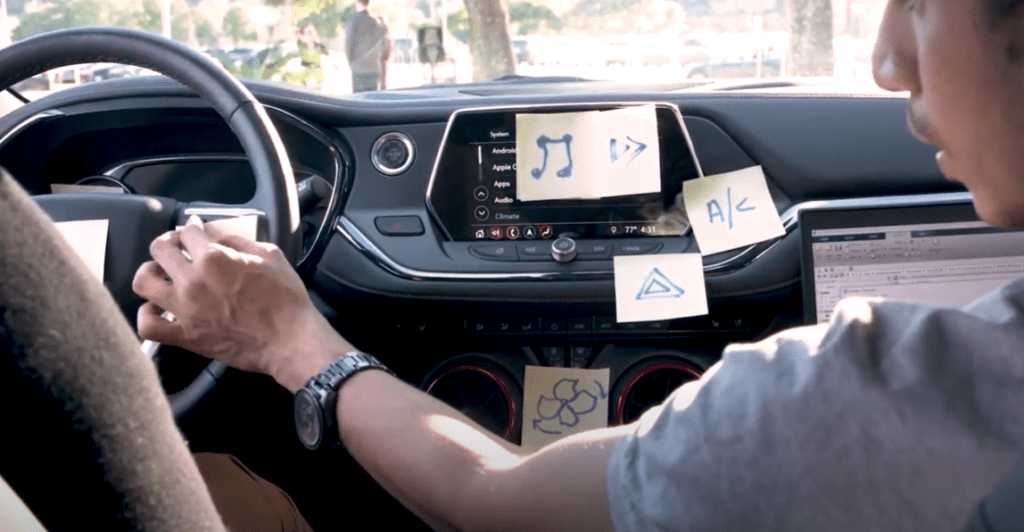
EcoCAR recognizes that training in HMI/UX is crucial for the next generation of automotive engineers as effectively relating to customers is a crucial skill for engineers entering the workforce. According to EcoCAR student and Georgia Tech HMI / UX Lead, Erin Tan, “The HMI track brings a lot of opportunities to explore very relevant problems that the automotive industry faces today.” The EcoCAR HMI/UX program is hands-on and allows students to learn the basic concepts of user centered design then apply the skills through structured activities. Tan added, “I think focusing on developing for the end-user is a huge skill that you get to explore in the HMI track, which is important because it’s a huge part of the industry as well. We get to work on both the technical and design aspects of our product, allowing us to be creative with how we interact with the end user.”
In order to better educate EcoCAR students on HMI / UX, sponsors such as MathWorks, Consumer Reports, and J.D. Power have provided training to students on topics such as, ideation techniques, testing porotypes with users, processing user data, understanding heuristics, and more. Subject Matter Experts (SMEs) with unique backgrounds from General Motors, PACCAR, Consumer Reports and J.D. Power meet one-on-one with students and act as mentors in the program. To apply the skills learned during these trainings, students have been able to build surveys, host focus groups, and develop prototypes.
Schools such as Embry-Riddle Aeronautical University (ERAU) have also embraced the need for educating future engineers on the importance of UX. ERAU Faculty Barbara and Alex Chaparro reside in the Department of Human Factors, which offers degrees at the B.S., M.S., and PhD level. HMI design and principles are a required part of the curriculum.
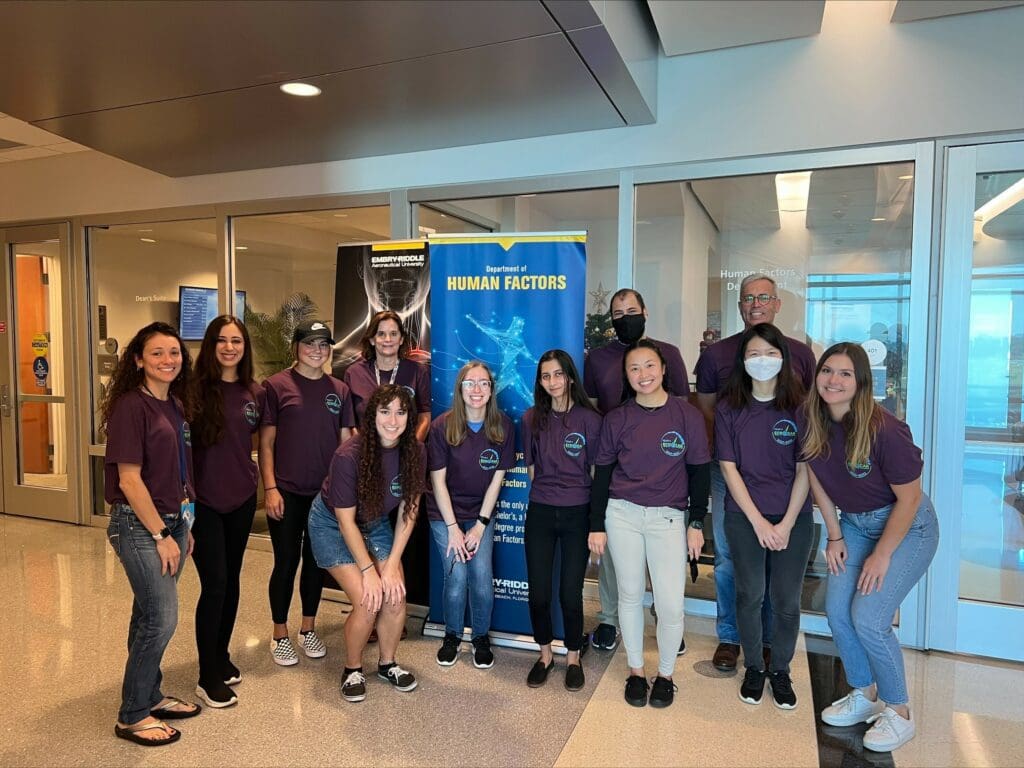
According to B. Chaparro, “EcoCAR is a perfect, practical project that allows students to apply the knowledge they gain from these classes.” She added, “As technology advances, the need for effective, efficient, and satisfying interfaces will continue to be paramount to the success of products. In autonomous vehicles, in particular, the well-designed HMI is extremely important to the operator being able to successfully monitor the system’s safe operation.”
Through the support of industry partners and academic institutions, the EcoCAR program has better prepared future leaders to think about the needs of their customers and how to educate them on new and emerging vehicle technologies.
